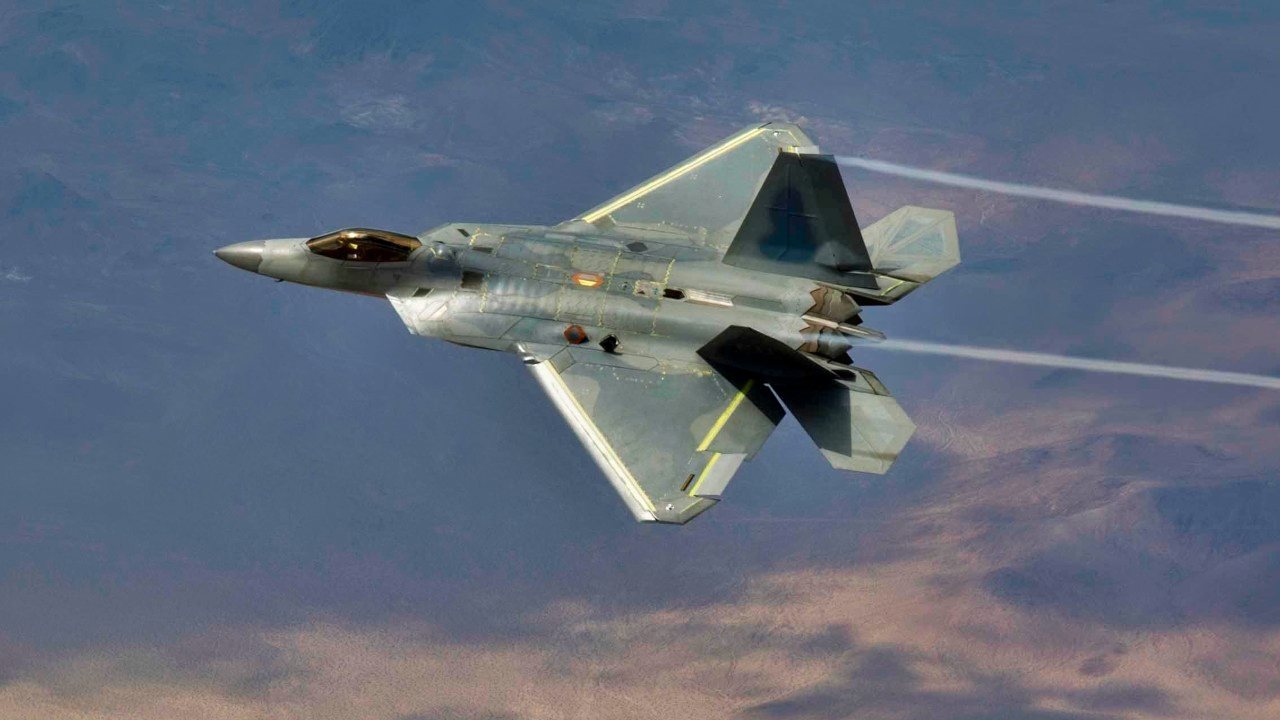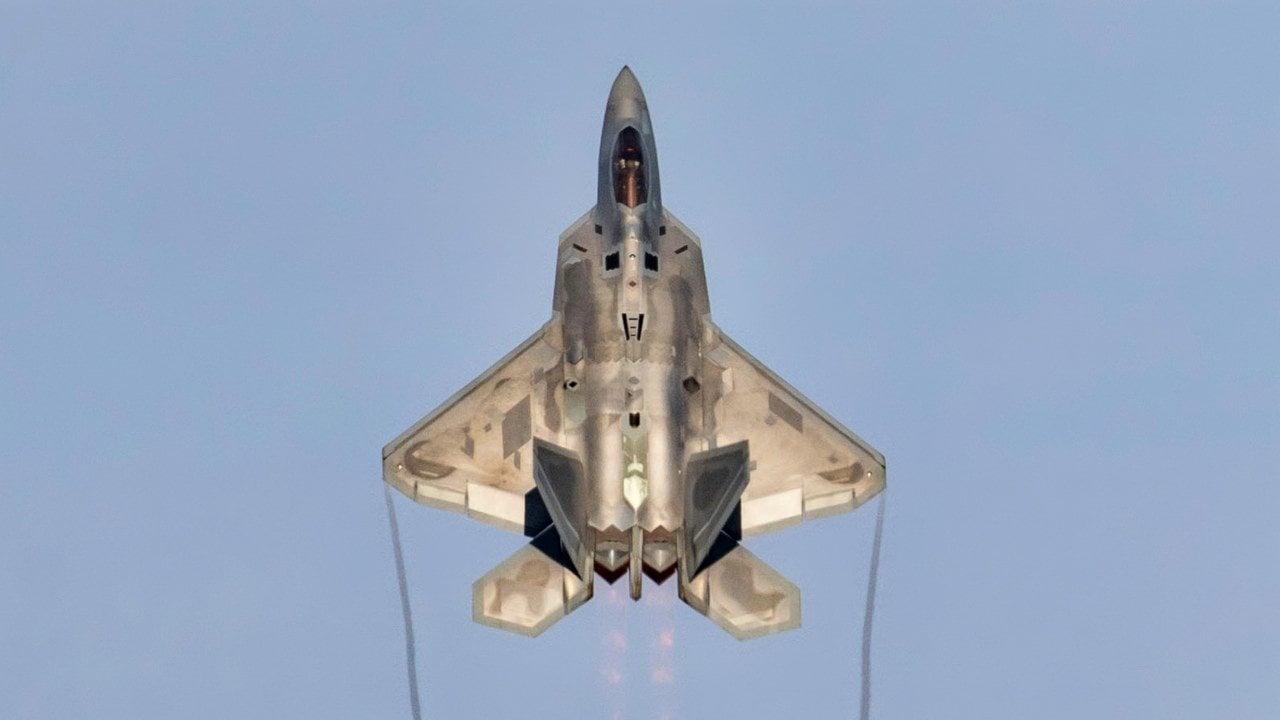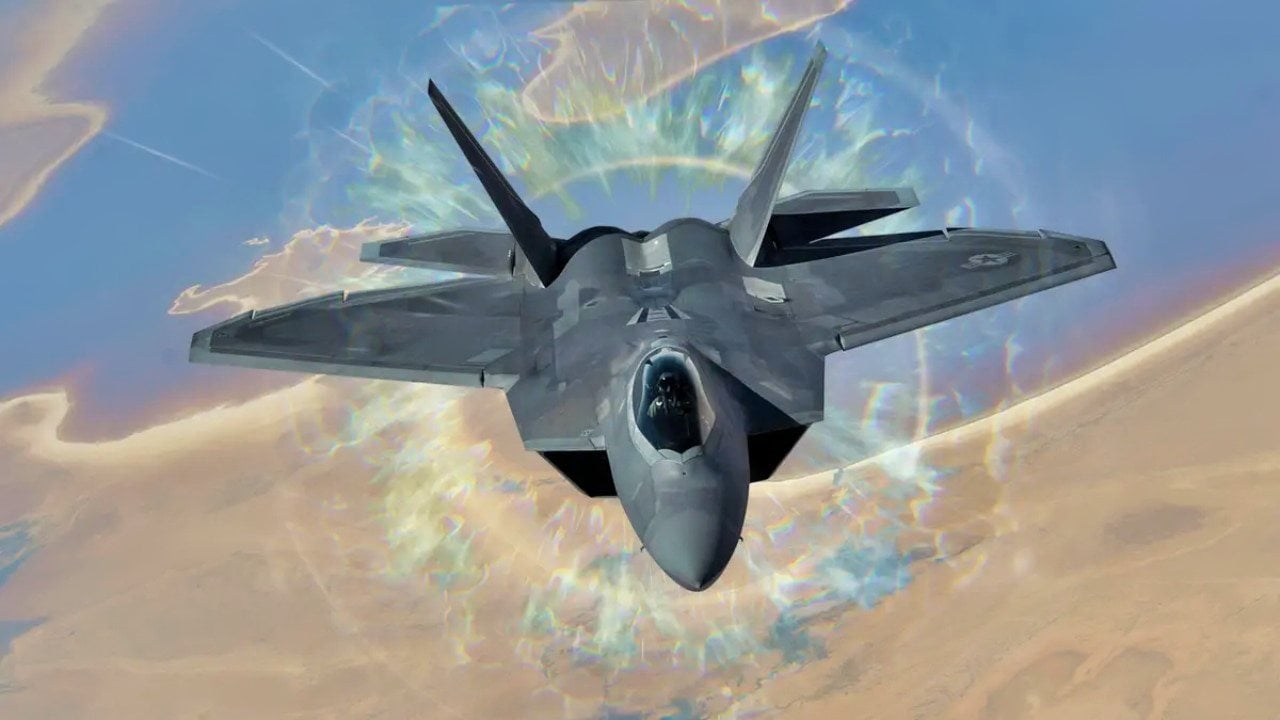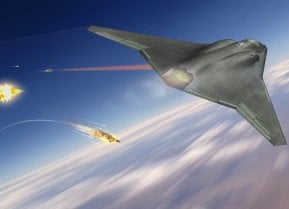The F-22 Raptor: The Stealth Fighter Israel Will Never Fly
Israel has sought the F-22 Raptor, but a U.S. Congressional ban prohibits its export. Passed in the 1990s, the law blocks foreign sales of the F-22 due to its advanced stealth technology and unparalleled air superiority capabilities.
What You Need to Know: Israel has sought the F-22 Raptor, but a U.S. Congressional ban prohibits its export. Passed in the 1990s, the law blocks foreign sales of the F-22 due to its advanced stealth technology and unparalleled air superiority capabilities.

-Equipped with F119 twin-thrust vectoring engines, an ultra-low radar cross-section, and formidable weapons capacity, the Raptor is unmatched in stealth and dogfighting.
-Despite its aging next to the F-35, the F-22’s unique specs make it desirable for Israel’s defense needs, but the ban and halted production lines mean Israel will continue relying on its other jets, including the specialized F-16 Sufa.
Why Doesn’t Israel Fly the F-22 Raptor?
American fighter jets are being deployed to the Middle East amidst escalating tensions between Israel, Iran and its proxies, the U.S. Central Command announced on Friday. F-16 “Fighting Falcons” will arrive just as Israel is expected to launch a potential retaliatory attack on Tehran.
The Jewish state’s Air Force also flies a specialized variant of the F-16 dubbed Sufa “Thunderstorm,” which has continuously flown missions over the Gaza strip and Lebanon following the October 7, 2023, massacre launched by Hamas.
While the F-16 is a notable strike fighter, the IDF certainly wishes it had another American-made jet among its fleets.
Specifically, the F-22 Raptor. Although the fifth-generation platform may be older than the F-35 Joint Strike Fighter, it still exhibits unique capabilities that make it a legendary aircraft.
The F-22 is Coveted By All Nations:
Israel has long requested delivery of the F-22 Raptor platform. Other nations have also asked the Pentagon about potentially procuring the formidable fighter. However, the U.S. remains the only country in possession of the world’s first fifth-generation jet to ever fly the skies.
In the early 1990’s, Congress voted to explicitly prohibit the sale of the Raptor, stating that “None of the funds made available in this Act may be used to approve or license the sale of F-22 advanced tactical fighters to any foreign government.”

Designed with capabilities and qualities so far ahead of its counterparts back in the day, the U.S. wanted to ensure that its classified technology never got in the hands of adversarial nations.
Both Moscow and Beijing have histories of stealing American airframe design plans and reverse engineering other military systems, making safeguarding the F-22 even more critical.
Specs & Capabilities: What Makes the F-22 Raptor a Powerhouse?
The Raptor was designed by Lockheed Martin in the 1980s as an air superiority platform equipped with signal intelligence, ground attack, and electronic warfare functions. Perhaps the greatest attributes incorporated on this platform are its tiny radar cross-section and twin-thrust vectoring F119 turbofan engines.

The former enables the jet to fly with near invisibility from enemy aircraft, while the latter enables the fighter to out-class other fifth-generation counterparts in the skies.
In addition to stealth, the Raptor is also a master at dogfighting. Armament-wise, the jet possesses three internal weapons bays and can carry two Aim-9 Sidewinder air-to-air missiles and six Aim-120 AMRAAM radar-guided air-to-air missiles in its side weapons bay at the same time, while carrying 2 AIM-120 AMRAAM and two GBU-32 JDAM bombs in its center weapons bay simultaneously.
Based on its impressive specs and capabilities, it makes sense that the IDF continues to desire the Raptor platform. Despite some speculation that the U.S. was weighing delivering Raptors to aid the Jewish state’s war efforts, unless Congress overturns the current law prohibiting this platform from being sold or opens new F-22 production lines, this transaction would essentially be impossible. It seems Israel will have to wage on in its war efforts without its own fleet of Raptors.
About the Author: Maya Carlin, Defense Expert
Maya Carlin, National Security Writer with The National Interest, is an analyst with the Center for Security Policy and a former Anna Sobol Levy Fellow at IDC Herzliya in Israel. She has by-lines in many publications, including The National Interest, Jerusalem Post, and Times of Israel. You can follow her on Twitter: @MayaCarlin.
Image Credit: Creative Commons.


